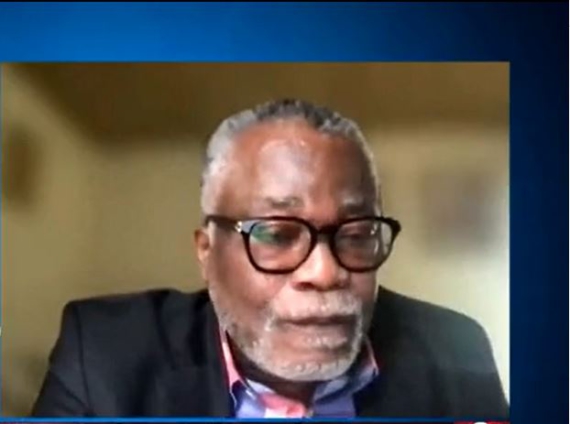An international conflict resolution expert, Col. (Rtd.) Festus Aboagye says the reasons behind the coups in neighbouring countries are contagious and likely to spread easily.
Speaking to Samson Lardy Anyenini on Newsfile on Saturday, he explained that the likelihood of the coups to spread is high, “especially if the conditions are right.”
“First of all, what is going on is a contagion; forget that the UN Secretary-General called it an epidemic, and a contagion can spread in all manner of ways,” he said.
This comes after a series of coups in countries like Mali and Guinea, within a year.
Currently, Burkina Faso has followed the trend with its military seizing power. The military leader Lieutenant Colonel Paul-Henri Damiba, together with some mutinies, deposed President Roch Kabore.
The coup was due to deepening anger about Kabore’s response to violence by armed groups.
Commenting on these happenings, the former military official said factors and circumstances that led to military coups in other West African democratic states exist in Ghana, although with different context-specificities.
He, therefore, urged government must put stringent measures to deal with the grievances of agitated groups and individuals.
Rtd Col Aboagye further cautioned Ghanaians to be concerned about the trends of coups happening in other African countries.
“We could find some of the grievances that have been used in other countries in our own country, and therefore we need to be very concerned.
"Corruption is here, as in Mali, Guinea and Burkina Faso. Political influence on the security services in those countries are also present in our own country. It involves civil-military relations; for instance, about dismissing officers, promoting officers and so on are all here," he stressed.
He suggested that the growing social-economic challenges in the country ought to be addressed to prevent such coups in the country.
“All of us need to be worried. I belong to the school of thought that you don’t fight terrorism with only guns and bullets. Indeed, it will be more productive to address some of the socio-economic inequalities.”
Meanwhile, the Faculty of Academic Affairs and Research director at the Kofi Annan International Peacekeeping Training Centre (KAIPTC), Prof. Kwesi Aning, is predicting a couple of coup d'états in the West African Region.
This, he said, is a result of the trajectory of extreme violence and the toxicity in politics such as excessive corruption, unemployment, poor educational system and other underlying factors of political instability present in most West African countries.
Latest Stories
-
We won’t be a disruptive Minority but will serve the interest of Ghanaians – Gideon Boako
9 minutes -
‘Merit over patronage’ – Sophia Akuffo calls for overhaul of Chief Justice selection process
15 minutes -
GPL: You have benefited from refereeing decisions – Dreams FC slams Accra Lions for calling for reforms
30 minutes -
Deschamps to leave France job after 2026 World Cup
56 minutes -
NCCE congratulates Mahama, calls for unity and post-election collaboration
3 hours -
‘Democracy must work for the people’ – Mahama promises tangible change as he resets Ghana
3 hours -
Why Akufo-Addo calls me Johnny – Mahama reflects on rivalry, respect, and history
3 hours -
‘A beacon of hope’ – Prof. Opoku-Agyemang’s rise lauded by NDC Professionals Women
3 hours -
Ghana’s leadership a beacon of hope for Africa – Tinubu
4 hours -
Explosive fertiliser in Ivory Coast harbour nothing to fear, officials say
4 hours -
Nigerian atheist freed from prison but fears for his life
4 hours -
Djokovic still has ‘trauma’ over Covid deportation
5 hours -
Constitution isn’t broken, but it needs a service – Former Chief Justice Sophia Akuffo
5 hours -
Macron accused of ‘contempt’ over Africa remarks
5 hours -
Miner, 23, fined for receiving payments through electronic medium falsely
6 hours

